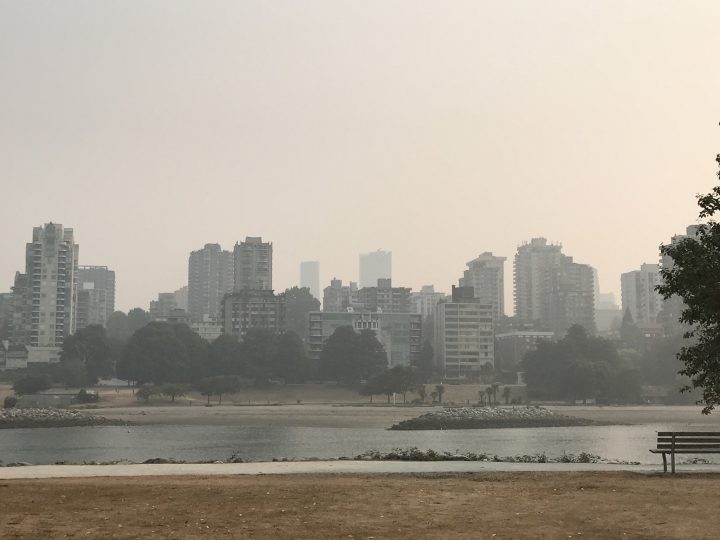Metro Vancouver residents could be breathing easier in the next 15 years as air quality improves, a new report suggests.

The region’s latest Caring for the Air report says smog-forming emissions in the area could decrease by 10 per cent by 2035 thanks to improved emissions standards for vehicles and appliances.
Other improvements including lower-carbon fuels and the region’s own wood stove exchange program could also lead to further reductions.
WATCH: (Aired Aug. 10, 2018) What you should know when there is an air quality alert

“Everyday activities like driving cars and heating homes unavoidably result in the discharge of air contaminants and greenhouse gases,” Metro Vancouver’s climate action committee chair and Vancouver Coun. Adriane Carr said in a release.
“Our goal is to limit peoples’ exposure to air pollution through the regulatory, education and policy tools available to us, in order to ensure that our residents have clean air to breathe.”
Overall, greenhouse gas emissions are expected to drop by 35 per cent by 2035, the report says, putting the region on track to achieve Metro Vancouver’s Climate 2050 strategy that calls for an 80 per cent drop in those emissions from 2007 levels.
But the report also warns that wildfire smoke is also preventing air quality from improving as quickly as it should.

Get breaking National news
It says the wildfires of 2017 and 2018 triggered unprecedented lengthy air quality advisories due to fine particulate matter from the smoke, including a 22-daylong advisory last year.
Metro Vancouver board chair and Burnaby Coun. Sav Dhaliwal linked the increasing effects from wildfires to climate change, and said new clean air and environmental initiatives are needed.
“Climate change is having a significant effect on our air quality, especially in terms of wildfire smoke,” Dhaliwal said in a statement.
“The Clean Air Plan will build on existing activities and outline new strategies that continue to protect public health and the environment, and reduce our contribution to climate change.”
A new version of the Clean Air Plan, which is intended to guide policy and actions to reduce climate emissions, is set to go for public consultation later this year.
The Metro Vancouver board hopes to adopt it by 2020.








Comments